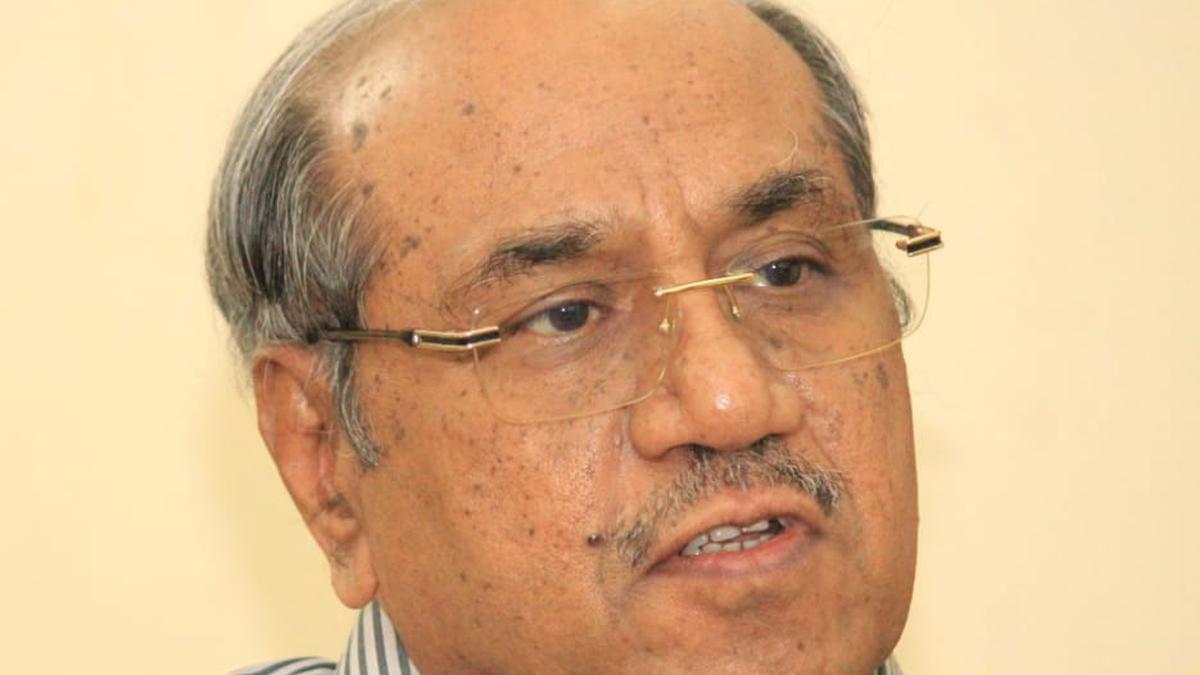
Advocate General R. Shunmugasundaram refuses consent to initiate criminal contempt proceedings against DMK leader R.S. Bharathi
The Hindu
AG refuses to grant consent to initiate criminal contempt proceedings against DMK's R.S. Bharathi for criticizing HC judge's suo motu revision. AG cites SC's verdicts in Baradakanta Mishra & Arundhati Roy cases, stating fair criticism of judicial act not contempt.
Tamil Nadu Advocate General R. Shunmugasundaram on Friday, September 22 refused to grant consent to initiate criminal contempt of court proceedings against Dravida Munnetra Kazhagam (DMK) organisation secretary R.S. Bharathi for having criticised Justice N. Anand Venkatesh of the Madras High Court after the latter took up suo motu revision against discharge/acquittal of a few sitting Ministers from disproportionate assets cases.
To get today’s top stories from the State in your inbox, subscribe to our Tamil Nadu Today newsletter
Rejecting an application made by ‘Savukku’ Shankar alias A. Shankar seeking consent as required under Section 15 of the Contempt of Courts Act of 1971, the A-G said, he had perused the statements made by Mr. Bharathi to the media on August 24 but did not find any offence of criminal contempt having been made. The A-G said, even Justice Venkatesh himself had refused to initiate suo motu criminal contempt against the DMK leader.
“The statement in dispute may be a criticism but there is no intention to scandalise a judicial proceeding nor intended to interfere with a judicial proceeding. It may only be a criticism against a particular judicial action.... The statement does not have sufficient material to warrant granting of consent to initiate action for criminal contempt,” the A-G said, while dismissing the consent application filed before him on August 28.
Mr. Shunmugasundaram said, the applicant had not provided a transcription of the statement made by the DMK leader but had only provided a web link to the press meet. A perusal of the link showed that Mr. Bharathi had categorically stated that the suo motu revision orders would be taken on appeal to the Supreme Court. Therefore, his intention was not scandalise or lower or tend to lower the authority of the judiciary, the A-G said.
“When the statement is read as a whole, his intention is made clear that he wants to raise the stated grounds before the Supreme Court in his appeal. Additionally, on August 26, the learned judge Mr. Justice N. Anand Venkatesh himself had refused to initiate any contempt of court action on this issue by stating that the court was not inclined to take any action against anyone who criticised his orders of suo motu revisions,” the A-G said.
Reminding the applicant that Section 5 of the Contempt of Courts Act states that a fair criticism of a judicial act would not amount to contempt, the A-G cited Supreme Court’s verdict in Baradakanta Mishra Versus Registrar of Orissa High Court (1974) wherein it was held: “The jurisdiction is not intended to uphold the personal dignity of the judges. That must rest on surer foundations.”

 Run 3 Space | Play Space Running Game
Run 3 Space | Play Space Running Game Traffic Jam 3D | Online Racing Game
Traffic Jam 3D | Online Racing Game Duck Hunt | Play Old Classic Game
Duck Hunt | Play Old Classic Game











